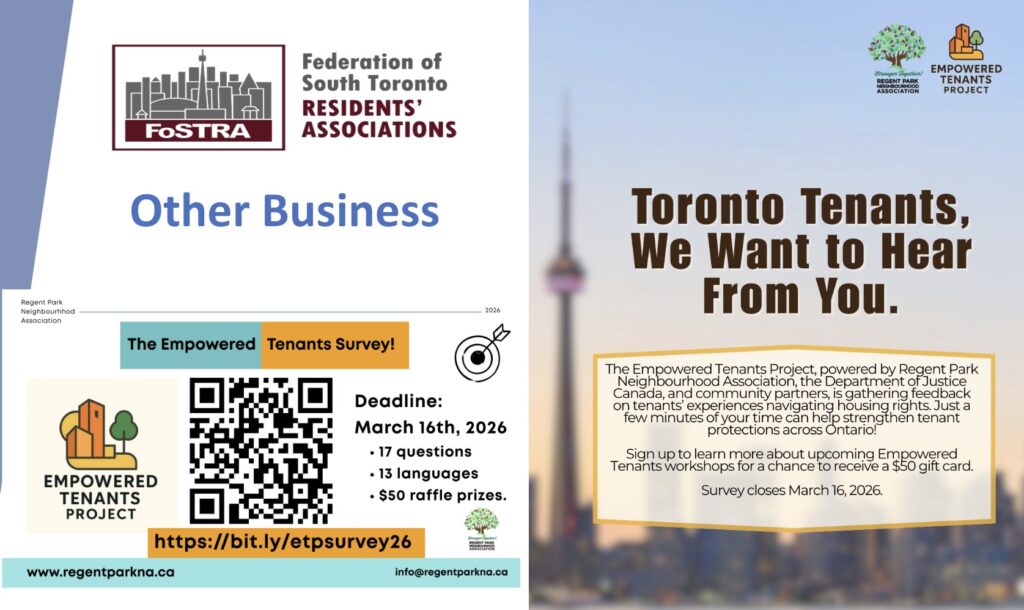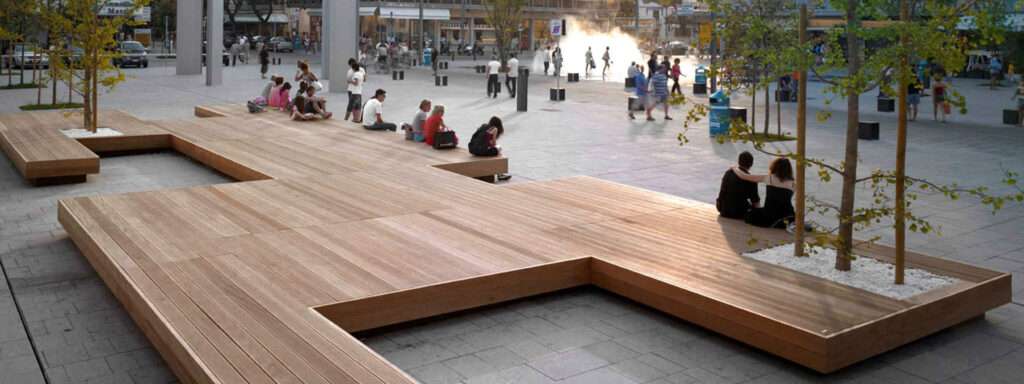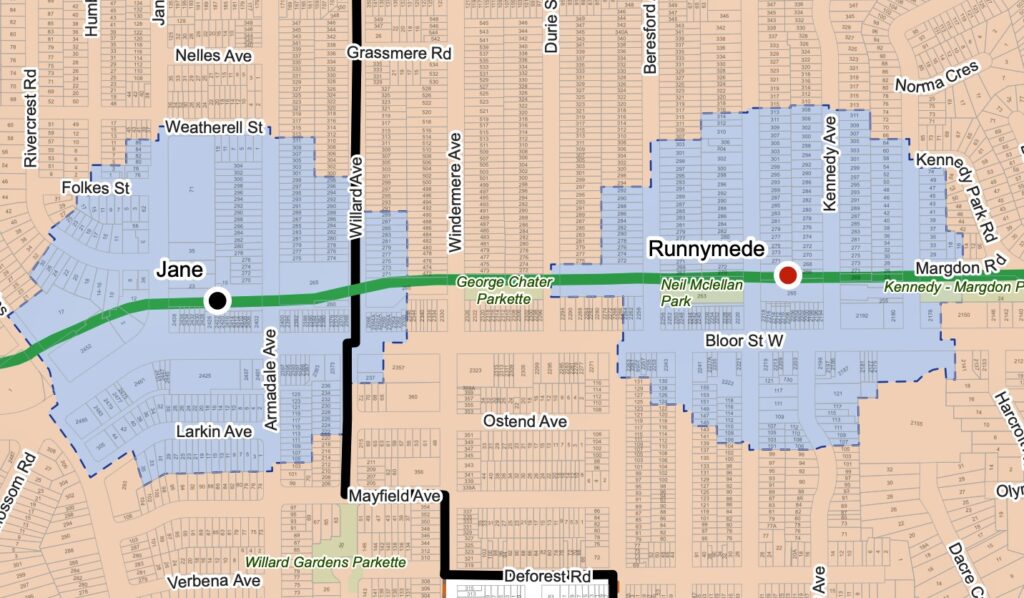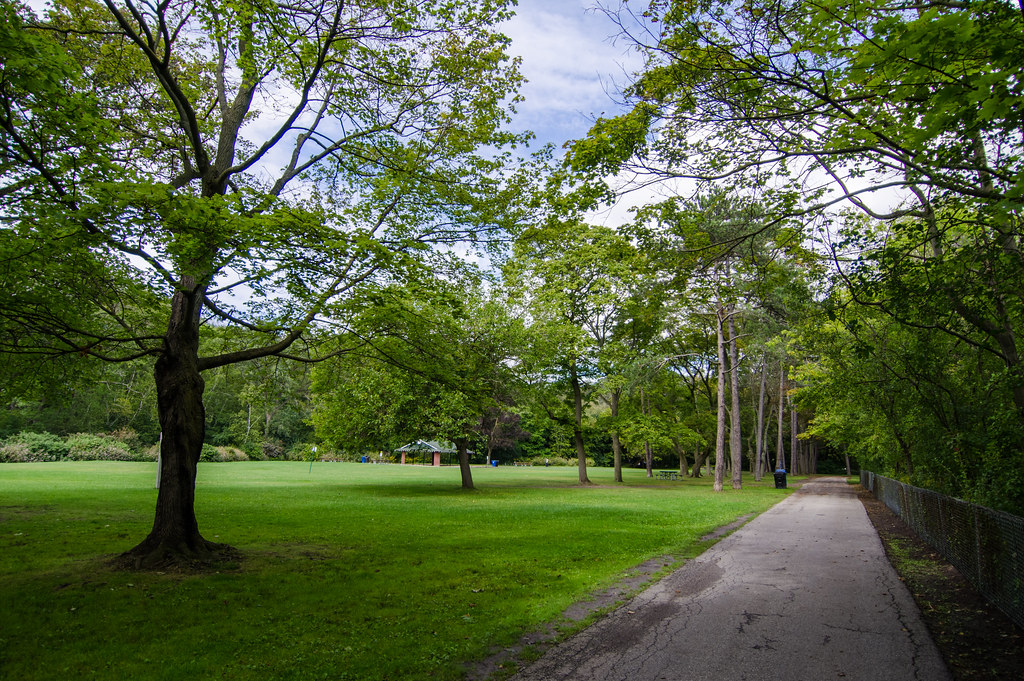
Click here for the survey.

Click here for the survey.

What is street furniture? Sofas, chairs and coffee tables? Not exactly, although seating is indeed included.
The City of Toronto is exploring opportunities to update its Street Furniture Program, and it wants your input. They’ve launched a short survey to learn what street furniture features and functions matter most to you (e.g. real-time information at transit shelters, more seating, Wi?Fi and more). Your feedback will be considered as the City makes updates to the program.
Here’s a link to the survey which closes on March 29: https://ca.mar.medallia.com/StreetFurniture. No personal information will be collected.

The City will permit certain height and density changes to areas that are within a short walking distance from transit stations. To implement these requirements, they must determine which lots are within 200m and 500m of each station. In our neighbourhood, there are two stations that fall within this map: Jane Street and Runnymede TTC stations.
Draft maps showing the 200m and 500m distances from all stations are now available on the project website, toronto.ca/StationAreaZoning.
Our neighbourhood was featured in a recent Novea Res Urbis article, highlighting key issues around densification and protected major transit areas. You can view the article by clicking here.


While not technically in our catchment area, this is a nearby development of note. The proposal calls for an 18 unit, 32 bedroom 3 storey multi-family building for 247/249 High Park Avenue. According to ther current plan, the build is longer, wider, and has twice the allowable gross flor area than is allowed on the site.
More information can be found here.
The BWVRA supports a return to programs we’ve seen in the past such as OpenStreetsTO and ActiveTO, and the encouragement they provide for healthier, more active lifestyles. Our neighbourhood, with its parks, streets and local shopping, is no exception. We believe we’d gain by people walking and biking more safely as they engage with their BWV community.
If you, like us, would like to see this program brought back in 2026 by our city leadership, please visit this link to learn more and show your support. Thank you.

On June 26, the City adopted an Amendment that will allow multi-unit dwellings to occupy detached residential buildings in low-rise, residential neighbourhoods. Bloor West Village is within the adopted boundaries. For a copy of the decision or to see instructions to appeal, please click here.


The City wants to hear from you as it develops its strategy for parks and recreation. As we all know, Bloor West Village is home or adjacent to many of these spaces including High Park. Click here to visit the project website, which offers many different ways to engage or share feedback and ideas.

Our local bike lanes have been in the news lately and the BWVRA board supports them. If you’d like to share your opinion, please visit this link.

Our local bike lanes are becoming increasingly popular with bicycles and now, e-bikes, e-scooters and e-mopeds. Each are very different in size, weight, and speed. The latter three each pose an opportunity for transportation and exercise, but also issues for pedestrians and other non-powered cyclists. And regulation has not caught up. This Global and Mail article neatly sums up the story.